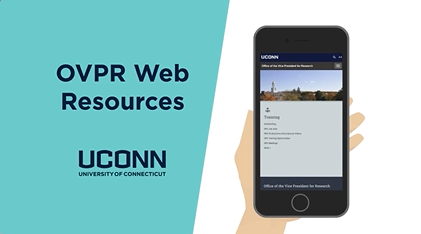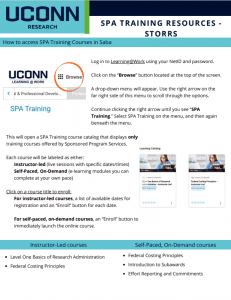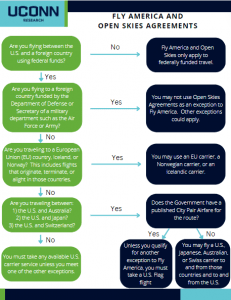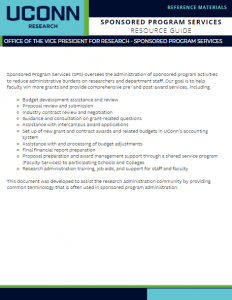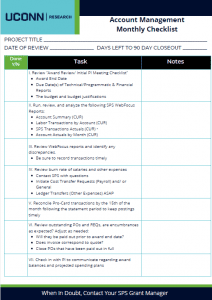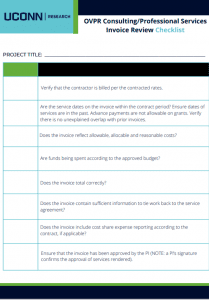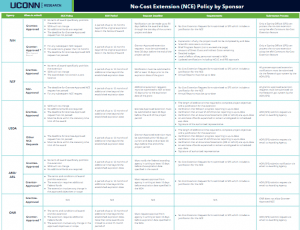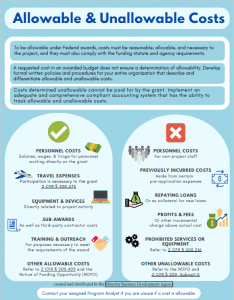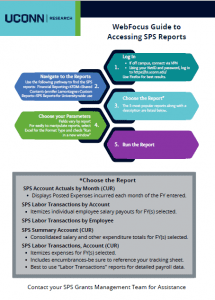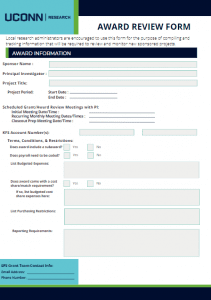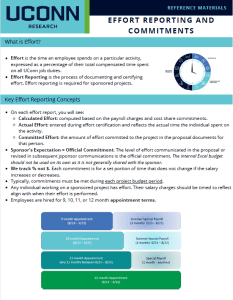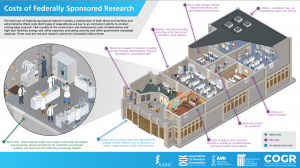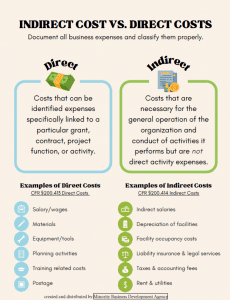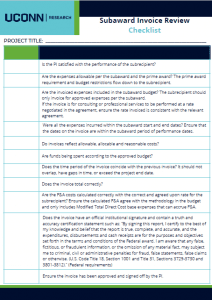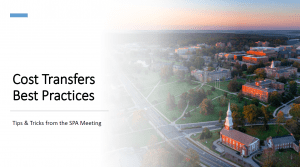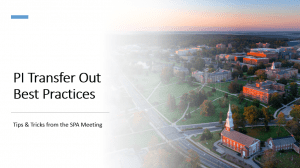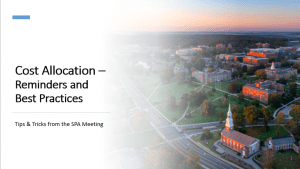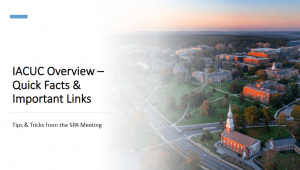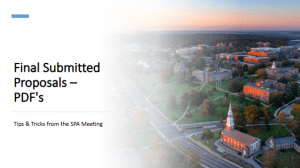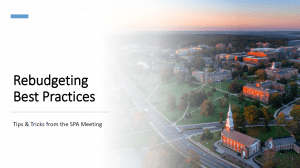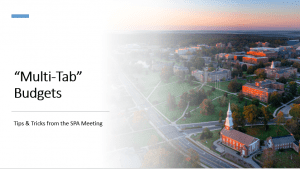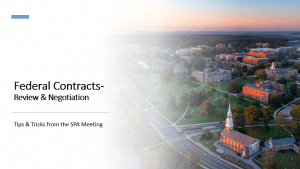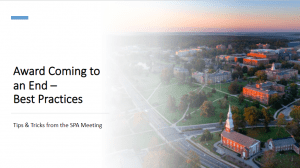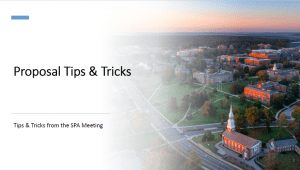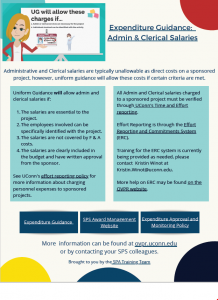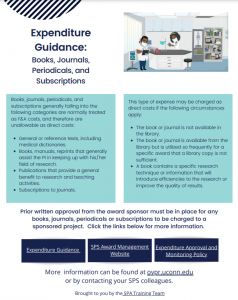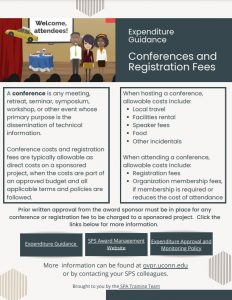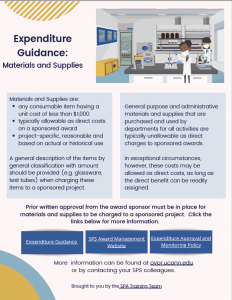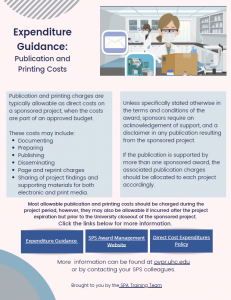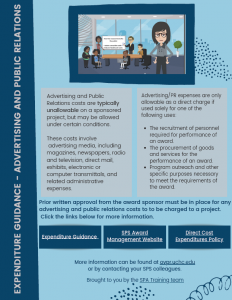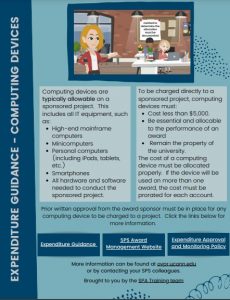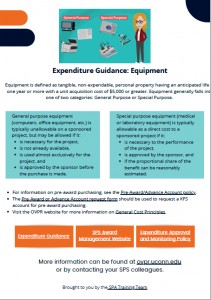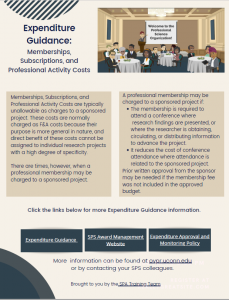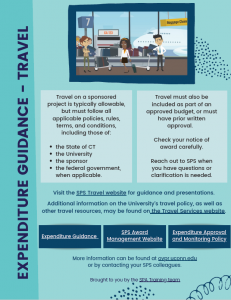As the state's flagship public university, UConn feeds the talent pipeline for high paying jobs in Connecticut's growing industries. In partnership with Innovate Stamford, UConn's Office of the Vice President for Research is administering the UConn-Innovate Stamford Internship Program. Every year, the program supports 50 paid summer internships at companies in the Stamford Innovation District. Participating companies range from major corporations to high-potential smaller businesses and startups. As part of the program, interns will also be mentored in entrepreneurship and innovation by academic and business leaders. In addition, interns receive a $5,000 stipend, as well as no cost housing in dorms on the UConn Stamford campus.
For more information about the UConn-Innovate Stamford Internship Program, contact:
Elly Kohl
Corporate Relations Liaison
Office of the Vice President for Research
elly.kohl@uconn.edu
860.486.5032
2019 Summer Internship Opportunities
Due to some recent technical difficulties with the system, we have extended the application deadline to Sunday, March 17, 2019.
* Please review the internship descriptions and the list of eligibility criteria below before proceeding to the application.
Marketing Intern, IronYun, Inc . . . job id: 1
Company Name: IronYun, Inc.
Internship Title: Marketing Intern
Company Profile: IronYun is the next generation AI, big data video search B2B software company. We provide enterprise customers with AI machine learning video search software products for the video surveillance industry. For more information, please visit www.ironyun.com.
Internship Description:
Interns will be performing the following tasks:
- Social media content creation.
- Researching competitors, industries, trends, influencers, and media targets to identify opportunities.
- Writing and posting blog posts/tweets/updates, etc.
Required Background and/or Skills:
Course work and experience in Social Media Marketing, Influencer Marketing, Social Media Management, Adobe Illustrator, SEO, Microsoft Powerpoint, Excel, Creative & Analytical, Photoshop, Google Analytics+, Writing and Editing, SEO, WordPress, HTML/CSS/CRM (not mandatory).
Additional Preferred Background:
Ability to work in a fast paced, team oriented environment. Strong communications skills.
AI Software Engineer Intern, IronYun, Inc . . . job id: 2
Company Name: IronYun, Inc.
Internship Title: AI Software Engineer Intern
Company Profile:
IronYun is the next generation AI, big data video search B2B software company. We provide enterprise customers with AI machine learning video search software products for the video surveillance industry. For more information, please visit www.ironyun.com.
Internship Description:
The intern will work with industry leading AI computer vision software products that solve real world problems in the video search industry. You will have an opportunity to make advances creating breakthrough AI software products.
Required Background and/or Skills:
Experience in CV and deep learning is preferred. Experience in Python, C++ and JS is a PLUS.
Additional Preferred Background:
Strong interest in Artificial Intelligence, Computational Comprehension, Machine Reasoning, Machine Learning or related fields. Capable of quickly becoming familiar with new approaches to AI and computational comprehension.
Marketing Specialist (2 positions), Rapid Oxygen . . . job id: 3
Company Name: Rapid Oxygen
Internship Title: Marketing Specialist (2 positions)
Company Profile:
Rapid Oxygen is a MedTech company that manufactures and markets the R15: a patented rapid
response oxygen technology for airway and cardiac emergencies, operable by any Good Samaritan
without certification or training.
The R15 was designed in conjunction with the University of Michigan to provide immediately
accessible 100% Oxygen - safe, portable, non-explosive oxygen, permitted anywhere, even in public
areas where Oxygen cylinders are restricted by law.
The R15 is cleared by the FDA for emergency use as an Over-the-Counter (OTC) device, eliminating
the need for a medical prescription as required for Oxygen cylinders.
For more information, please visit www.rapidoxygen.com.
Internship Description:
Primary role is to assist Marketing Director with industry research, social media, sales training
materials and marketing strategies to strengthen the company’s market presence and to drive
revenue.
Responsibilities:
• Conduct general market research to keep abreast of trends and industry marketing efforts
• Assist with marketing campaign calendar development
• Assist with social media posts and developing social media content calendar
• Research industry influencers, trade publications, conferences and expos – organized by key target markets
• Brainstorm ideas for promotional offers/events/activities and organize them efficiently
• Assist with direct mailings, list management
• Assist with budgets/timelines
• Monitor online/website performance and submit reports
• Enter key marketing contacts/info into database
Required Background/Skills/Interests:
Marketing, Social Media, PR, Journalism, Writing, Trend Research
Software Engineering Assistant, Rapid Oxygen . . . job id: 4
Company Name: Rapid Oxygen
Internship Title: Software Engineering Assistant
Company Profile:
Rapid Oxygen is a MedTech company that manufactures and markets the R15: a patented rapid
response oxygen technology for airway and cardiac emergencies, operable by any Good Samaritan
without certification or training.
The R15 was designed in conjunction with the University of Michigan to provide immediately
accessible 100% Oxygen - safe, portable, non-explosive oxygen, permitted anywhere, even in public
areas where Oxygen cylinders are restricted by law.
The R15 is cleared by the FDA for emergency use as an Over-the-Counter (OTC) device, eliminating
the need for a medical prescription as required for Oxygen cylinders.
For more information, please visit www.rapidoxygen.com.
Internship Description:
Primary role is to assist R&D with Smart Technology Solutions for R15 Emergency Oxygen.
Responsibilities:
• Assist with identifying resources & process engineering for Phase 2 R&D Product Development
• Develop milestone timelines, budgets
• Assist with research
• Outline product functionality
• Assist integrating with 911 Dispatch Communication protocols
Required Background/Skills/Interests:
Engineering, Technology Software, Smart Technology, R&D, Medical Device
Graphic Designer, Rapid Oxygen . . . job id: 5
Company Name: Rapid Oxygen
Internship Title: Graphic Designer
Company Profile:
Rapid Oxygen is a MedTech company that manufactures and markets the R15: a patented rapid
response oxygen technology for airway and cardiac emergencies, operable by any Good Samaritan
without certification or training.
The R15 was designed in conjunction with the University of Michigan to provide immediately
accessible 100% Oxygen - safe, portable, non-explosive oxygen, permitted anywhere, even in public
areas where Oxygen cylinders are restricted by law.
The R15 is cleared by the FDA for emergency use as an Over-the-Counter (OTC) device, eliminating the need for a medical prescription as required for Oxygen cylinders.
For more information, please visit www.rapidoxygen.com.
Internship Description:
Primary role is to assist Marketing Director with creating compelling layouts for print and digital marketing deliverables.
Responsibilities:
Assist with designing multiple marketing deliverables for direct mail, website, sales training and promotional materials.
Required Background/Skills/Interests:
Graphic Design, Website Programming/Development (Squarespace preferred), Writing
Marketing & Sales Intern (2 positions), Copyleaks . . . job id: 6
Company Name: Copyleaks
Internship Title: Marketing & Sales Intern (2 positions)
Company Profile:
Copyleaks is a cloud-based platform focused on detecting plagiarism, copyright infringement and content leaks in textual content. Our platform helps students, teachers, publishers, IP lawyers and businesses track content and insure its originality.
For more information, please visit www.copyleaks.com
Responsibilities:
The marketing and sales intern will assist with:
- Marketing campaign development
- Client management and services
- Email marketing
- Social media marketing
- Client outreach (inbound and outbound)
Required Background and/or Skills:
- Basic understanding of online marketing (SEO)
- Fluent in Microsoft Suite Applications
- Developing marketing outreach
- Comfortable with technology
- Excellent people skills
- Excellent writing skills
- Creative and outgoing
Mechanical Engineering Intern, Orthozon Technologies . . . job id: 7
Company Name: Orthozon Technologies
Internship Title: Mechanical Engineering Intern - trailblazing AR enabled surgical visualization systems
Company Profile:
Orthozon Technologies, LLC is a start-up medical technology company pioneering augmented reality-enabled surgical visualization systems. We are located in Stamford, CT, only a short walk away from the Stamford train station and downtown area. Orthozon beta-released a ground-breaking new AR technology in November 2018 that can be used to perform spine surgery and hand surgery. Its features are now being further expanded to address other procedures such as brain, eye, ENT, and gastrointestinal surgery, with a planned launch date of May 1st.
For more information, please visit www.orthozontechnologies.com.
Internship Description:
Orthozon is looking for talented individuals who are self-teaching, quick learners and can work in a fast-paced start-up environment. You will be assisting in the development of our augmented reality visualization system, particularly in the mechanical engineering areas such as: camera fixtures, camera 3D alignments, articulating joints, fasteners, cosmetic cushioning, electronics casings, product assembly, technology scouting, red laser alignment and LED lighting. You will also be working with a variety of materials and will be expected to build your understanding of material properties for creating high-quality finished products. There will be plenty of interfacing with our firmware/software engineers to ensure component compatibility. You may also have an opportunity to be involved in our patent authoring process, depending on the patentability of your work.
Responsibilities:
- Maintain up-to-date design and drawing files/records; working closely with R&D team on any new assignments; receiving feedback on designs and following good practices for design revisions
- Ability to work with in-house 3D Stereolithography (SLA) printer; and learn post-processing and finishing of prototype/production design parts
Required Background and/or Skills:
- Strong Proficiency in Dassault Systemes’ SOLIDWORKS or Inventor or equivalent CAD software skills
- CAD/Solidworks basic skills: extrusion; cuts; screw holes; threading; tolerances
- CAD/Solidworks advanced skills: Surfaces; FEA
- Knowledgeable in Mechanical Engineering Design principles
- Be able to sketch concept schematics and convert to engineering design/drawings
- Strong attention to detail
- Good organizational skills
- Ability to work with some hand-tools: drill, Dremel
- Proficiency with MS Office
- Must be both a team player and be able to work independently
- Must have a positive attitude and be enthusiastic
- Must demonstrate capability to learn new skills and apply them
Software/Computer Engineering Intern, Orthozon Technologies . . . job id: 8
Company Name: Orthozon Technologies
Internship Title: Software Engineering Intern - trailblazing AR enabled surgical visualization systems
Company Profile:
Orthozon Technologies, LLC is a start-up medical technology company pioneering augmented reality-enabled surgical visualization systems. We are located in Stamford, CT, only a short walk away from the Stamford train station and downtown area. Orthozon beta-released a ground-breaking new AR technology in November 2018 that can be used to perform spine surgery and hand surgery. Its features are now being further expanded to address other procedures such as brain, eye, ENT, and gastrointestinal surgery, with a planned launch date of May 1st.
For more information, please visit www.orthozontechnologies.com.
Internship Description:
Orthozon is looking for talented individuals who are self-teaching, quick learners and can work in a fast-paced start-up environment. You will be assisting in the development of our augmented reality visualization system, particularly in the software/computer engineering areas such as: C++ coding, python coding, Java coding, image signal processing, wireless communication, video frame manipulation, hardware controllers, custom driver development, software overlays, image/shape recognition. There will be plenty of interfacing with our hardware engineers to ensure component compatibility. You may also have an opportunity to be involved in our patent authoring process, depending on the patentability of your work.
Required Background and/or Skills:
• Strong computer programming skills (C++, C, Java, Python, similar), with experience in producing code for practical real-world applications (please provide a sample of your work).
• Experience in producing code for prototype-level product or higher.
• Strong analytical and problem-solving skills.
• Strong attention to detail
• Good organizational skills
• Proficiency with MS Office
• Must be both a team player and be able to work independently
• Must have a positive attitude and be enthusiastic
• Must demonstrate capability to learn new skills and apply them
Marketing Intern, Sema4 . . . job id: 9
Company Name: Sema4
Internship Title: Marketing Intern
Company Profile:
Sema4 is a patient-centered predictive health company founded on the idea that more information, deeper analysis, and increased engagement will improve the diagnosis, treatment, and prevention of disease. A Mount Sinai Health System venture based in Stamford, Connecticut, Sema4 is dedicated to transforming healthcare by building more dynamic models of human health and defining optimal, individualized health trajectories, starting with reproductive health and oncology. Our innovative Sema4 Health Intelligence Platform is enabling us to generate a more complete understanding of disease and wellness and to provide science-driven solutions to the most pressing medical needs. Sema4 believes that patients should be treated as partners, and that data should be shared for the benefit of all.
For more information, please visit www.sema4.com.
Internship Description:
The intern will assist the marketing team in conducting marketing campaigns and projects that will promote brand awareness for Sema4 and its genetic testing products and services. The intern will work closely with members of the marketing team to both contribute on these marketing projects, and learn & expand their marketing skill set.
Required Background and/or Skills:
The intern should have excellent communications skills, both written and verbal.
Additional Preferred Background:
Being savvy with social media platforms (Twitter, Instagram, Facebook, LinkedIn) is an added plus. Being savvy with digital marketing, such as Google Adwords, is an added plus. Ideally, the intern should have an interest in healthcare, technology or genomics.
Marketing Intern (2 positions), The Junkluggers, LLC . . . job id: 10
Company Name: The Junkluggers, LLC
Internship Title: Marketing Intern (2 positions)
Company Profile:
Become part of something big. At The Junkluggers, it is our mission to save the Earth, one lug at a time. By 2025, we aim to donate and recycle 100% of all items we remove from residential and commercial jobs, setting the standard in the United States for eco-friendly disposal practices. We are working towards this goal every day, searching for new charities to donate to and more environmentally friendly ways to dispose of materials we lug away that can be neither donated nor recycled.
Join a culture and team of people that are energetic, ambitious and fun! Founded and lead by 32-year-old Josh Cohen, our awesome company is based near the heart of Stamford in a bright and sunny office and retail space. The Junkluggers (an INC 5000 Company) and its affiliate businesses is a purpose-driven, fast growing company that is expanding like crazy. We operate a number of businesses including eco-friendly junk removal, local moving and delivery, second hand furniture sales and national franchising. We are offering the right candidate a great opportunity to get involved and exposed to a wide range of functions and businesses within our company at a very exciting time of growth and expansion. (By the way - did we also mention we have a pool table?)
For more information, please visit www.junkluggers.com.
Internship Description:
- Identify ways to promote the company, events, and activities through the innovative use of social media, and create and curate content on social media and our company website
- Assist the Marketing Manager with all digital marketing related initiatives
- Identify ways to promote the company, events, and activities through the innovative use of social media, and create and curate content on social media and our company website
- Assist the Marketing Manager with all digital marketing related initiatives
Required Background and/or Skills:
You are an energetic well-organized creative problem solver and goal-oriented team player who loves a challenging and fun environment. You have a record of achievement academically. You are looking to work hard to gain hands-on business experience while working with a seasoned marketing professional You are excited to join a team that strives to WOW every customer with exceptional customer service. You are committed to reaching your full potential in a supportive learning environment.
- Excellent writing skills
- Preferred major or degree in Marketing or Business
- Experience with and/or knowledge of Social Media, CRM, Marketing Automation, Email Marketing, SEO & PPC
- Ability to handle multiple tasks with deadlines
- Must be detail oriented, analytic and organized
- Be accountable and responsible
Additional Preferred Background:
Previous Marketing internship a plus
HR Assistant, The Junkluggers, LLC . . . job id: 11
Company Name: The Junkluggers, LLC
Internship Title: HR Assistant
Company Profile:
Become part of something big. At The Junkluggers, it is our mission to save the Earth, one lug at a time. By 2025, we aim to donate and recycle 100% of all items we remove from residential and commercial jobs, setting the standard in the United States for eco-friendly disposal practices. We are working towards this goal every day, searching for new charities to donate to and more environmentally friendly ways to dispose of materials we lug away that can be neither donated nor recycled.
Join a culture and team of people that are energetic, ambitious and fun! Founded and lead by 32-year-old Josh Cohen, our awesome company is based near the heart of Stamford in a bright and sunny office and retail space. The Junkluggers (an INC 5000 Company) and its affiliate businesses is a purpose-driven, fast growing company that is expanding like crazy. We operate a number of businesses including eco-friendly junk removal, local moving and delivery, second hand furniture sales and national franchising. We are offering the right candidate a great opportunity to get involved and exposed to a wide range of functions and businesses within our company at a very exciting time of growth and expansion. (By the way - did we also mention we have a pool table?)
For more information, please visit www.junkluggers.com.
Internship Description:
The HR Assistant will work under the guidance and direction of our HR Manager and assist with certain aspects of the daily departmental processing, including recruiting, onboarding (employee and Franchise), benefits administration, and general personnel issues. In addition the HR Assistant will will work with the following departments and heads:
- Office Management/Human Resources
- Operations
- Inbound Customer Loyalty Center
What You’ll Learn:
- Learn the back end “Ins and Outs” of the different sections of our company:
- Junk Removal
- Remix Market (charity furniture sale)
- Franchising
- Human Resources full cycle hiring
- The basics of Office Management, managing a call center and running a fundraising program
Required Background and/or Skills:
- Desire to explore and or pursue a career in Human Resources
- Strong computer skills including keyboard and software (MS Office Suite, Google Docs/Sheets)
- Environmentally-conscious- Resonance with our Mission and Core Values
- Highly organized and self-motivated
- Upbeat attitude-
- Strong People Skills
- Ability to follow established processes
- Team Player
- Coachable and hungry to learn
Additional Preferred Background:
Experience in an Office environment preferred
Sales Support Intern, The Junkluggers, LLC . . . job id: 12
Company Name: The Junkluggers, LLC
Internship Title: Sales Support Intern
Company Profile:
Become part of something big. At The Junkluggers, it is our mission to save the Earth, one lug at a time. By 2025, we aim to donate and recycle 100% of all items we remove from residential and commercial jobs, setting the standard in the United States for eco-friendly disposal practices. We are working towards this goal every day, searching for new charities to donate to and more environmentally friendly ways to dispose of materials we lug away that can be neither donated nor recycled.
Join a culture and team of people that are energetic, ambitious and fun! Founded and lead by 32-year-old Josh Cohen, our awesome company is based near the heart of Stamford in a bright and sunny office and retail space. The Junkluggers (an INC 5000 Company) and its affiliate businesses is a purpose-driven, fast growing company that is expanding like crazy. We operate a number of businesses including eco-friendly junk removal, local moving and delivery, second hand furniture sales and national franchising. We are offering the right candidate a great opportunity to get involved and exposed to a wide range of functions and businesses within our company at a very exciting time of growth and expansion. (By the way - did we also mention we have a pool table?)
For more information, please visit www.junkluggers.com.
Internship Description:
Assist Director of Sales and Business Development Manager with the following activities:
- Market Research and Data Compilation and Analysis
- Multi Channel Lead Generation and Qualification (There is NO outbound Cold Calling)
- CRM Management and Workflow
- Perform clerical and administrative functions
Required Background and/or Skills:
• Ability to write routine reports and correspondence.
• Effective people and interpersonal skills, and ability to to receive direct delegation of tasks with minimal to no supervision.
• Ability to apply common sense understanding to carry out instructions furnished in written, oral, or diagram form.
• Ability to deal with problems.
• Requires working knowledge of Microsoft Office Software and other computer software.
• Must have strong verbal, writing and interpersonal communications skills.
• Must have the ability to follow through on multiple tasks.
Additional Preferred Background:
Desire to understand and potentially pursue Account Management, or Business Development career.
Franchise Support Intern, The Junkluggers, LLC . . . job id: 13
Company Name: The Junkluggers, LLC
Internship Title: Franchise Support Intern
Company Profile:
Become part of something big. At The Junkluggers, it is our mission to save the Earth, one lug at a time. By 2025, we aim to donate and recycle 100% of all items we remove from residential and commercial jobs, setting the standard in the United States for eco-friendly disposal practices. We are working towards this goal every day, searching for new charities to donate to and more environmentally friendly ways to dispose of materials we lug away that can be neither donated nor recycled.
Join a culture and team of people that are energetic, ambitious and fun! Founded and lead by 32-year-old Josh Cohen, our awesome company is based near the heart of Stamford in a bright and sunny office and retail space. The Junkluggers (an INC 5000 Company) and its affiliate businesses is a purpose-driven, fast growing company that is expanding like crazy. We operate a number of businesses including eco-friendly junk removal, local moving and delivery, second hand furniture sales and national franchising. We are offering the right candidate a great opportunity to get involved and exposed to a wide range of functions and businesses within our company at a very exciting time of growth and expansion. (By the way - did we also mention we have a pool table?)
For more information, please visit www.junkluggers.com.
Internship Description:
The intern will assist in a development project related to our new product for assistance for the software(s) and standard operating procedures used within The Junkluggers and affiliated businesses. This will include tending to tickets or inquiries submitted by our franchise partners and home office, assisting with and providing training to current and future franchise partners, and helping to research and develop standard operating procedures for new software(s) used by The Junkluggers and affiliated businesses. The focus of this role is to work with our existing support team to meet our established support SLAs as well as ensure the growth and success of our staff and franchise partners.
Required Background and/or Skills:
- MS Office products, and proficiency with MS Excel
- Experience with Google Drive products
- Experience with Gmail / G-Suite
- Great attitude and aptitude to learn new skills, take on new challenges and work in an adaptive environment.
- Solid organizational, time management, and follow-through skills
- Strong communication skills - both written and verbal
Additional Preferred Background:
- 1-2 years previous experience in a support role or customer service position
- Ability to present to groups and individuals
Blockchain Intern (2 positions), Pitney Bowes . . . job id: 14
Company Name: Pitney Bowes
Internship Title: Blockchain Intern (2 positions)
Company Profile:
Pitney Bowes is a global technology company providing commerce solutions that power billions of transactions. The 1.5 million clients around the world, including 90% of the Fortune 500, rely on the accuracy and precision delivered by Pitney Bowes solutions, analytics and APIs in the areas of ecommerce fulfillment, shipping and returns; cross-border ecommerce; office mailing and shipping; presort services; location data; customer information and engagement software; services; and financing. For nearly 100 years Pitney Bowes has been innovating and delivering technologies that remove the complexity of getting commerce transactions precisely right. Our 14,000 passionate Craftsmen of Commerce around the world maintain a relentless pursuit of innovation with over 2,300 active patents, and focus on clients, who are at the center of all that we do.
For more information, please visit www.pitneybowes.com.
Internship Description:
As a Blockchain Technology Intern, you will work with the innovation team to deliver a wide variety of vital activities that will investigate and demonstrate the viability and business value of emerging technologies, most notably blockchain. You will implement proof of concept and pilot test implementations of blockchain related applications in the areas such as supply chain logistics and financial services. You will also help bring new innovation creating smart contracts and integrating existing systems with blockchain technology. Your Internship with Pitney Bowes will help you gain cross-functional and cross cultural working experience by collaborating with engineering, UX, and logistics organizations in partners in the US and other global Pitney Bowes divisions.
- Research blockchain and related technologies
- Develop proof of concept implementations of multiple node blockchain systems in logistics and finance
- Gather and synthesize research on markets, use cases, and clients
- Create Blockchain health and performance dashboards which demonstrate the effectiveness of pilot implementions
- Gain exposure to Pitney Bowes Senior Leaders
- Assist in development of a blockchain center of excellence within Pitney Bowes
Required Background and/or Skills:
- Great written, communication, and research skills
- Analytical and creative mind – balanced with a sense of humor
- Fast, eager learner
- Programming expertise
- Web application development
- Javascript
- Linux familiarity
- Familiarity with blockchain technology and smart contracts a plus
- Enjoys reading up on the latest tech trends
Accelerated Innovation Intern, Pitney Bowes . . . job id: 15
Company Name: Pitney Bowes
Internship Title: Accelerated Innovation Intern
Company Profile:
Pitney Bowes is a global technology company providing commerce solutions that power billions of transactions. The 1.5 million clients around the world, including 90% of the Fortune 500, rely on the accuracy and precision delivered by Pitney Bowes solutions, analytics and APIs in the areas of ecommerce fulfillment, shipping and returns; cross-border ecommerce; office mailing and shipping; presort services; location data; customer information and engagement software; services; and financing. For nearly 100 years Pitney Bowes has been innovating and delivering technologies that remove the complexity of getting commerce transactions precisely right. Our 14,000 passionate Craftsmen of Commerce around the world maintain a relentless pursuit of innovation with over 2,300 active patents, and focus on clients, who are at the center of all that we do.
For more information, please visit www.pitneybowes.com.
Internship Description:
As an Accelerated Innovation Intern you will work as part of the Strategic Technology and Innovation Center (ST&IC). ST&IC is the corporate research organization within Pitney Bowes, chartered with technology leadership and enablement for innovative products and services that will help Pitney Bowes to grow future businesses.
Your Internship with Pitney Bowes will have a direct impact on our Innovation practice which partners with Product Managers and other stakeholders across the company to identify and shape new business opportunities. Your contribution will help us to accelerate and enrich product development cycles utilizing design thinking, business-hypothesis-driven experimentation, iterative product releases, and "validated learning" through customer research.
If you are highly motivated with strong analytical skills, clear business acumen, and a demonstrated ability to contribute strongly to the process of innovation, we would like to hear from you.
The Job:
- Conduct customer research and connect observed needs / problems to concepts that deliver value through addressing these needs
- Frame opportunities, collect data, and identify patterns quickly and creatively in order to generate insights from customer research
- Play a key role in the design of experiments and prototypes to test critical business assumptions
- Apply learning in an iterative and fast-paced fashion
- Communicate the merits of business alternatives with project team-members and business leaders
Required Background and/or Skills:
- Pursuing (or completion of) Degree in Design, Business, or other related field
- Apply learning in an iterative and fast-paced fashion
- Communicate the merits of business alternatives with project team-members and business leaders
- Interest, and ideally expertise in, Design Thinking, user-centered innovation, and customer research techniques
- Able to thrive when working as a part of a collaborative small team
- Excellent communication skills, both verbal and written
CX Analyst Intern, Pitney Bowes . . . job id: 16
Company Name: Pitney Bowes
Internship Title: CX Analyst Intern
Company Profile:
Pitney Bowes is a global technology company providing commerce solutions that power billions of transactions. The 1.5 million clients around the world, including 90% of the Fortune 500, rely on the accuracy and precision delivered by Pitney Bowes solutions, analytics and APIs in the areas of ecommerce fulfillment, shipping and returns; cross-border ecommerce; office mailing and shipping; presort services; location data; customer information and engagement software; services; and financing. For nearly 100 years Pitney Bowes has been innovating and delivering technologies that remove the complexity of getting commerce transactions precisely right. Our 14,000 passionate Craftsmen of Commerce around the world maintain a relentless pursuit of innovation with over 2,300 active patents, and focus on clients, who are at the center of all that we do.
For more information, please visit www.pitneybowes.com.
Internship Description:
CX Strategy:
- Assist in developing best practice reviews for leading CX strategies/tools
- Assist in maintaining an internal CX site with resources and tools
- Assist in preparing executive level presentations and workshop materials
Measurement and Analytics:
- Conduct analysis on CX data for trends, relationships, patterns, pain points and opportunities
- Assist in dashboarding and reporting through data visualization and storytelling to enable operating teams to take (the right) actions
- Monitor and maintain a portfolio, backlog, and roadmap of CX projects
Project Management, Communication and Collaboration:
- Assist in organizing internal CX events (summits, journey mapping sessions)
- Assist in CX projects including logistics support, action item tracking, communications, and status reporting
- Support culture change through assistance with internal communication and collaboration including workshops, roadshows, newsletters/articles, etc.
Required Background and/or Skills:
- Entrepreneurial mindset, and goal oriented (self-directed, proactive).
- Curiosity to learn new things especially around customer service technology and consumer insights.
- Passionate and able to work in a fast paced, start-up, and team environment.
- Upbeat, personable, positive, and can-do attitude.
- Superior People Skills - ability to collaborate with cross-functional team.
- Excellent problem solving skills.
- Highly organized and detail oriented.
- Strong project management skills.
Computer Science Intern (2 positions), Pitney Bowes . . . job id: 17
Company Name: Pitney Bowes
Internship Title: Computer Science Intern (2 positions)
Company Profile:
Pitney Bowes is a leading provider of customer communication technologies. A $5.3 billion company with over 14,000 employees globally, we serve 90% of fortune 500 companies both large corporations and small-to-medium-sized businesses in more than 100 countries. Our software, equipment and services help businesses communicate more effectively in today’s multi-channel environment. The Strategic Technology & Innovation Center (ST&IC) is a research organization within Pitney Bowes chartered with technology leadership and collaborating with lines of business to create innovative products and services for our customers.
For more information, please visit www.pitneybowes.com.
Internship Description:
The intern will assist in projects to explore and develop the new product and service leveraging the emerging technology, participate the software design, coding, debugging, and documentation. The responsibilities of the intern include:
- Learn and work alongside our development team to enhance your skills.
- Perform hands-on development work.
- Work closely with development team members to design, develop, implement and support complex business solutions.
Required Background and/or Skills:
- Currently enrolled in a Bachelor of Science degree program in Computer Science, Information Technology, Computer Information Technology, Information Systems Management, Computer Engineering, or Software Engineering
- Working knowledge of at least one of the following programming languages. Examples: Java, Python, Scala, C++
- Understanding foundational concepts of data development and operational procedures
- Proficiency with data structures and algorithms
Additional Preferred Background:
- Familiarity with Linux/iOS is a plus
- Experience with Spark, Hadoop
- Familiarity with traditional relational database and NoSQL databases is a plus
Data Science Engineering Intern, Pitney Bowes . . . job id: 18
Company Name: Pitney Bowes
Internship Title: Data Science Engineering Intern
Company Profile:
Pitney Bowes (NYSE: PBI) is a global technology company offering innovative products and solutions that enable commerce in the areas of customer information management, location intelligence, customer engagement, shipping and mailing, and global ecommerce. More than 1.5 million clients in approximately 100 countries around the world rely on products, solutions and services from Pitney Bowes.
For more information, please visit www.pitneybowes.com.
Internship Description:
You will work as part of the Strategic Technology and Innovation Center (ST&IC), the corporate research organization within Pitney Bowes, chartered with technology leadership and enablement for innovative products and services that will help Pitney Bowes to grow future businesses. As a member of our multi-disciplinary team, you will be an important contributor to ST&IC’s research agenda, working to solve challenging problems, and unlock new opportunities relevant to our business. Our research is motivated by knowledge discovery in data problems arising in areas of interest that include E-Commerce, Shipping, Spatial Data, and the Internet of Things.
- Engage with business units and cross-functional teams focused on building businesses
- Develop a deep understanding of data-sets through a combination of database queries, and exploratory statistical analysis
- Design and develop Machine Learning models and algorithms that provide insights and drive performance, across key areas of interest to the company
- Formulate business needs as data science problems where applicable, and effectively communicate these to peers, managers, and key stakeholders, including the benefits and limitations of models
Required Background and/or Skills:
- Pursuing a degree in a quantitative discipline e.g. Computer Science, Math, Physics, Statistics, or other related field
- Strong quantitative skills, with solid grasp of key concepts in Probability, Statistics, Algorithm design, and Machine Learning
- Working knowledge of advanced statistics and tools such as SQL, R, Python, and Matlab
- Able to thrive when working as a part of a small, collaborative team
Additional Preferred Background:
- Experience in programming (C /Java/.NET), and database such as Oracle/SQL-Server is a plus
UX Interaction Design Intern, Pitney Bowes . . . job id: 19
Company Name: Pitney Bowes
Internship Title: UX Interaction Design Intern
Company Profile:
Pitney Bowes is a global technology company providing commerce solutions that power billions of transactions. The 1.5 million clients around the world, including 90% of the Fortune 500, rely on the accuracy and precision delivered by Pitney Bowes solutions, analytics and APIs in the areas of ecommerce fulfillment, shipping and returns; cross-border ecommerce; office mailing and shipping; presort services; location data; customer information and engagement software; services; and financing. For nearly 100 years Pitney Bowes has been innovating and delivering technologies that remove the complexity of getting commerce transactions precisely right. Our 14,000 passionate Craftsmen of Commerce around the world maintain a relentless pursuit of innovation with over 2,300 active patents, and focus on clients, who are at the center of all that we do.
For more information, please visit www.pitneybowes.com.
Internship Description:
A UX Designer who can derive client insights, influence and collaborate with a variety of teams to design and deliver experiences that win in the market. You are a forward thinker who acts with purposefulness and speed and is committed to championing new ideas and creativity while using humor and positivity to build a winning team.
You will:
- Discover the needs and problems of users, clients and stakeholders
- Create prototypes, screenshots, wireframes, and proofs-of-concept that demonstrate user experiences, flows, and experimental solutions
- Validate prototypes through qualitative user research and/or A/B testing
- Quickly and thoughtfully incorporate feedback into designs
- Partner and build collaborative relationships with Researchers, Technologists, Data Scientists, Developers, and Product Managers, and other cross-functional teams
Required Background and/or Skills:
- Skilled in HTML, CSS, and JS. Experience with mobile development a bonus
- Well versed in best practices in UI design, UX research, and usability testing and expertise with prototyping tools, techniques, and methodologies
- Expertise in user-centered innovation and customer research techniques
- Able to thrive when working as a part of a collaborative small team
- Preferred Degree in Human-Computer Interaction (HCI), Design, Computer Science, or other related fields of study or equivalent experience
Back-End Developer Intern, Pitney Bowes . . . job id: 20
Company Name: Pitney Bowes
Internship Title: Back-End Developer Intern
Company Profile:
Pitney Bowes is a leading provider of customer communication technologies. A $5.3 billion company with over 14,000 employees globally, we serve 90% of fortune 500 companies both large corporations and small-to-medium-sized businesses in more than 100 countries. Our software, equipment and services help businesses communicate more effectively in today’s multi-channel environment. The Strategic Technology & Innovation Center (ST&IC) is a research organization within Pitney Bowes chartered with technology leadership and collaborating with lines of business to create innovative products and services for our customers.
For more information, please visit www.pitneybowes.com.
Internship Description:
As an ST&IC intern you will collaborate with the team to develop web applications for our big data platform, engaging in software design, debugging, and documentation. We will work together with the goal of proving concepts in order to bring new products to life. You will be on the cutting edge, iterating quickly and adding features to new and exciting products in the early stages of development. You will directly:
- Learn and work alongside our development team to enhance your skills
- Perform hands-on development work.
- Work closely with development team members to design, develop, implement and support complex business solutions.
Required Background and/or Skills:
- Currently enrolled in a Bachelor’s or Master’s degree program in Computer Science or a related field
- Experience writing server-side code to support web applications (Java, REST APIs)
- Experience with SQL an d database concepts
- Proficiency with data structures and algorithms
- Working knowledge of front-end development (HTML, CSS, JavaScript, jQuery, Angular)
- Ability to exercise independent judgment
Additional Preferred Background:
- Familiarity with data visualization techniques and concepts
iOS Software Intern, Arccos Golf . . . job id: 21
Company Name: Arccos Golf
Internship Title: iOS Software Intern
Company Profile:
Arccos develops innovative Artificial Intelligence and Connected Golf technologies that leverage the power of data, cloud computing and machine learning to deliver insights that help golfers of all skill levels maximize their potential and optimize their enjoyment.
Combining Live Shot Tracking + GPS 2.0 + Tour Analytics, the company’s flagship product - Arccos Caddie - has consistently been named Golf’s #1 Performance Tracker. Featuring 14 sensors - one for each club - the system pairs with a smartphone app. Arccos Caddie then seamlessly and automatically records every shot a golfer takes, delivering real-time data on distances hit, club averages, driving accuracy, greens in regulation, sand saves, putts and more.
Named one of "The World's Most Innovative Companies 2018" by Fast Company, Arccos is the global leader in golf data and Artificial Intelligence. Through a long-term technology partnership with Microsoft, we're revolutionizing the golfing experience by delivering actionable insights that help golfers, and businesses in golf, make smarter decisions to optimize performance.
For more information, please visit www.arccosgolf.com.
Internship Description:
This project seeks to enhance the in-play experience by calculating useful distances from the features on a hole to the user’s current location. The features of a golf hole (tee boxes, fairways, bunkers, greens, water hazards, etc.) are described as a collection of GPS points/locations. Knowledge of these distances can help a golfer plan their next shot better. The project will involve working with these collections of points and be able present useful information to the golfer in the form of actual and plays-like distances. There is an algorithmic component as well as a UI/Front End component.
In addition to being able to extract useful data from the features, the iOS team is looking to develop additional UI for the Apple Watch experience. The Apple watch with it’s smaller screen brings some unique challenges. The UI must be easy to use with a small number of interactions.
Finally, this should be done in an energy efficient manner. Code should be well factored and performant, and maintain a responsive and fluid user interface and experience. This is a great project for an aspiring mobile developer to show their ingenuity, and creativity and technical skills.
Required Background and/or Skills:
- A computer science background with an analytical mindset.
- Any previous experience working on map based applications is a plus.
Additional Preferred Background:
- Experience in iOS development, Swift, Objective-C, data structures, collection, object-oriented programming, big 0 notation.
- Nice-to-haves would be MapKit, CoreGraphics, any machine learning experience (i.e., Tensor Flow, SciKit Learn and Keras), Git, Python and front-end development experience.
- Experience with golf is a huge plus.
Android Software Intern, Arccos Golf . . . job id: 22
Company Name: Arccos Golf
Internship Title: Android Software Intern
Company Profile:
Arccos develops innovative Artificial Intelligence and Connected Golf technologies that leverage the power of data, cloud computing and machine learning to deliver insights that help golfers of all skill levels maximize their potential and optimize their enjoyment.
Combining Live Shot Tracking + GPS 2.0 + Tour Analytics, the company’s flagship product - Arccos Caddie - has consistently been named Golf’s #1 Performance Tracker. Featuring 14 sensors - one for each club - the system pairs with a smartphone app. Arccos Caddie then seamlessly and automatically records every shot a golfer takes, delivering real-time data on distances hit, club averages, driving accuracy, greens in regulation, sand saves, putts and more.
Named one of "The World's Most Innovative Companies 2018" by Fast Company, Arccos is the global leader in golf data and Artificial Intelligence. Through a long-term technology partnership with Microsoft, we're revolutionizing the golfing experience by delivering actionable insights that help golfers, and businesses in golf, make smarter decisions to optimize performance.
For more information, please visit www.arccosgolf.com.
Internship Description:
This project revolves around enhancing the Arccos in-play experience by calculating distances to features on a golf hole from the user’s current location. The features of a golf hole (tee boxes, fairways, bunkers, greens, water hazards, etc.) are described as a collection of GPS points/locations. The project will involve working with these collections and processing them efficiently to provide useful information to the golfer in the form of actual and plays-like distances.
The project will be designed and built in a way to support the addition of this information to the Android Wearable app in the future.
The data will need to be calculated and processed in an efficient manner to preserve battery life, and maintain a responsive and fluid user interface and experience. It will require a back end and front end component.
This is a great project for aspiring Android developers to show their ingenuity, creativity and technical skills.
Required Background and/or Skills:
- A Computer Science background with an analytical mindset
- Experience in Android development
- Java/Kotlin
- XML/Custom Views
- Database Experience (Querying, Sorting, Filtering, etc.)
- Data Structures
- Big 0 Notation
- Knowledge/Experience with golf is a huge plus
Production Management Intern, ITV America . . . job id: 23
Company Name: ITV America
Internship Title: Production Management Intern
Company Profile:
ITV America is now the largest independent producer of non-scripted content in America, through its production companies ITV Entertainment, Leftfield Pictures, Sirens Media, Outpost Entertainment, High Noon Entertainment, Thinkfactory Media, and Good Caper Crime. ITV America produces leading content, including Queer Eye, Hell’s Kitchen, Love Island, The Four, Pawn Stars, Fixer Upper, Forged in Fire, and Real Housewives of NJ, just to name a few.
For more information, please visit www.itv-america.com.
Internship Description:
The intern will assist in the daily operations of a production management team overseeing multiple productions. Responsibilities will include: on-set help for studio and field shoots, production runs, receipt reconciliation, travel booking assistance, financial document preparation and general administrative support. They will also have the opportunity to assist various creative productions, including: research, footage review and organization.
Required Background and/or Skills:
- background in Microsoft Office, Google Docs and a general understanding of online platforms
- a passion for television
- a “can-do” attitude
- a valid driver's license
Additional Preferred Background:
Ideally the intern should have experience in spreadsheets and editing software.
Post Production Intern, ITV America . . . job id: 24
Company Name: ITV America
Internship Title: Post Production Intern
Company Profile:
ITV America is now the largest independent producer of non-scripted content in America, through its production companies ITV Entertainment, Leftfield Pictures, Sirens Media, Outpost Entertainment, High Noon Entertainment, Thinkfactory Media, and Good Caper Crime. ITV America produces leading content, including Queer Eye, Hell’s Kitchen, Love Island, The Four, Pawn Stars, Fixer Upper, Forged in Fire, and Real Housewives of NJ, just to name a few.
For more information, please visit www.itv-america.com.
Internship Description:
The intern will assist in the editorial ingestion process of active productions at ITV and participate in the day-to-day operations of a working production/post production office. Assignments may include tasks such as learning how to organize footage into offline editing programs, tutorials on loading footage, export assignments, sit-ins with experienced Editors and Assistant Editors, advice and guidance from Post Management professionals, creation of network deliverables, assistance in maintaining office cleanliness, and more! The internship will strive to offer hands on experience and insight into the business of Post Production.
Required Background and/or Skills:
- Completed course work in the field of television or communications and ideally be working towards a degree in the field
- Some knowledge of Avid Media Composer, Adobe Premier, and/or Final Cut Pro preferable
- Proficiency in G-Suite, specifically Google Docs, is a plus
- Organized and eager to learn in a fast-paced environment
Additional Preferred Background:
Ideally, the intern should have experience in one or more of the following:
- Previous internship or work experience in television
- Experience handling, offloading, or loading media
- Professional or undergrad experience in editing
- Strong communication skills
- Attention to detail
Management Intern (2 positions), CircleLink Health . . . job id: 25
Company Name: CircleLink Health
Internship Title: Management Intern (2 positions)
Company Profile:
CircleLink’s technology platform plus nurse network provides chronic condition telephone coaching on behalf of doctors. They also drive up to $10B of new reimbursements to doctors. Investors include Fresco Capital, Blue Cross Blue Shield, and the Founder/CEO of Clover Health/founding board member of Flatiron Health. CircleLink has offices in Stamford, CT and New York City, while their customers are nationwide.
For more information, please visit www.circlelinkhealth.com.
Internship Description:
This is a unique opportunity to join a mission-driven technology company growing ~20% monthly. They offer a fun team environment plus the chance to significantly contribute to products already being used by patients and doctors at top institutions (e.g., Johns Hopkins, Yale-New Haven Hospital, Emory and Tulane Medical Center).
CircleLink is seeking driven interns to assist in a variety of roles including finance, sales/marketing, operations, product management, and relationship management with patients and healthcare providers (e.g., doctors and nurses). Ideally, the intern is a college junior/senior passionate about improving healthcare with an interest in potentially joining the team upon graduation.
Required Background and/or Skills:
- Passion for improving healthcare
- Active listening
- Initiative to act independently and create scalable processes where none exist
- Values action over words and proposing solutions over voicing concerns alone
- Skilled/comfortable with Excel and Google Sheets
- Professional communication style while calling, emailing and meeting senior executives
- 0-2+ years in healthcare (non-healthcare experience also considered)
Sales Analyst Intern, Charter Communications, Inc. . . . job id: 26
Company Name: Charter Communications, Inc.
Internship Title: Sales Analyst Intern
Company Profile:
Charter Communications (NASDAQ: CHTR) is America’s fastest growing TV, internet and voice company. We’re committed to integrating the highest quality service with superior entertainment and communications products. Charter is at the intersection of technology and entertainment, facilitating essential communications that connect more than 26 million residential and business customers in 41 states. Our commitment to serving customers and exceeding their expectations is the bedrock of Charter’s business strategy and it’s the philosophy that guides our 94,000 employees.
For more information, please visit www.jobs.spectrum.com/company-overview.
Internship Description:
The intern will assist in developing, creating and delivering data-driven sales reporting and data analyses for the Sales leadership team.
- Ensures timely preparation of daily, weekly and monthly KPI sales metric reports and analyzes for Sales leadership
- Analyzes data to identify and communicate significant trends to assist in achievement of business goals
- Supports decision-making processes, by providing forward-looking analysis and insights including "what if "and scenario analysis
- Fulfills ad hoc reporting requests, as needed, in support of business initiatives
Required Background and/or Skills:
- Strong written and verbal communication skills
- Excellent PC skills including high proficiency in Microsoft Excel, Powerpoint, Sharepoint
- Familiarity with SQL database query writing
- Hard working and eager to learn in a highly intellectual, collaborative environment
- Well-organized and detail-oriented
- Enthusiastic about developing and implementing ideas
Additional Preferred Background:
Majoring in Business, Finance, Economics, Statistics, Data Modeling, or Information Technology
Store Program Management Intern, Charter Communications, Inc. . . . job id: 27
Company Name: Charter Communications, Inc.
Internship Title: Store Program Management Intern
Company Profile:
Charter Communications (NASDAQ: CHTR) is America’s fastest growing TV, internet and voice company. We’re committed to integrating the highest quality service with superior entertainment and communications products. Charter is at the intersection of technology and entertainment, facilitating essential communications that connect more than 26 million residential and business customers in 41 states. Our commitment to serving customers and exceeding their expectations is the bedrock of Charter’s business strategy and it’s the philosophy that guides our 94,000 employees.
For more information, please visit www.jobs.spectrum.com/company-overview.
Internship Description:
The intern will assist in various Strategy & Program Management functions within the Stores Organization.
- Provide support for the launch of new retail locations across the country
- Assist with the ramping down of stores operations in designated regions
- Develop an understanding of sales trends to assist with headcount allocation and budget management
- Participate in cross-functional meetings and assist with resource/scheduling management
Required Background and/or Skills:
- Project and time management skills
- Communication skills
- Excel and PowerPoint skills
Additional Preferred Background:
Business, Marketing or related major is preferred
Marketing & Creative Strategy-Direct Response Intern, Charter Communications, Inc. . . . job id: 28
Company Name: Charter Communications, Inc.
Internship Title: Marketing & Creative Strategy - Direct Response Intern
Company Profile:
Charter Communications (NASDAQ: CHTR) is America’s fastest growing TV, internet and voice company. We’re committed to integrating the highest quality service with superior entertainment and communications products. Charter is at the intersection of technology and entertainment, facilitating essential communications that connect more than 26 million residential and business customers in 41 states. Our commitment to serving customers and exceeding their expectations is the bedrock of Charter’s business strategy and it’s the philosophy that guides our 94,000 employees.
For more information, please visit www.jobs.spectrum.com/company-overview.
Internship Description:
The intern will assist the Direct Response team with the following:
Direct Response Creative
- Quarterly review decks and creative reviews
- Email marketing including matrix development, proofing, agency feedback
- Proofing and creative support across all DM channels
- Creative report development (especially for Direct Mail)
- ISCI/trafficking (potentially)
- Competitive tracking (for marketing materials and for Competitive Edge/MobilePedia)
- BTS campaign
- Ad-hoc creative project support
Required Background and/or Skills:
- Proficient in Microsoft office applications – Word, Excel, Powerpoint, Outlook Mail
Additional Preferred Background:
Marketing or related major is preferred
Retail Partnership Intern, Charter Communications, Inc. . . . job id: 29
Company Name: Charter Communications, Inc.
Internship Title: Retail Partnership Intern
Company Profile:
Charter Communications (NASDAQ: CHTR) is America’s fastest growing TV, internet and voice company. We’re committed to integrating the highest quality service with superior entertainment and communications products. Charter is at the intersection of technology and entertainment, facilitating essential communications that connect more than 26 million residential and business customers in 41 states. Our commitment to serving customers and exceeding their expectations is the bedrock of Charter’s business strategy and it’s the philosophy that guides our 94,000 employees.
For more information, please visit www.jobs.spectrum.com/company-overview.
Internship Description:
This position will perform duties in support of Retail Operational audit and compliance initiatives. (e.g. monitoring marketing tactics compliance and reviewing promotional offers advertised by Retail Partners on several social media platforms such as Facebook, twitter and Instagram)
Job Duties:
The Retail Partnership Intern will assist in monitoring online and social media marketing tactics from Retail Partners on all social media platforms. By utilizing specific key words and terms, this role will help uncover any trends that are out of compliance when it comes to our social media presence. The intern will partner closely with our Retail Operations Specialists to document any correlation that may exist between social media tactics, audit findings and quality of sales, place test orders to accurately identify who the Retail Partner is, as well as track all social media and violation escalations.
Required Background and/or Skills:
- Major: Marketing, Communications, Advertising/Public Relations, English, Business and/or Entrepreneurship
- Effective communication and interpersonal skills; both written and verbal
- Proficient in Microsoft Office
- Experience with Microsoft Publisher
- Ability to work effectively on a team as well as independently
- Ability to work and learn in a fast-paced environment
Commercial Services Intern, Charter Communications, Inc. . . . job id: 30
Company Name: Charter Communications, Inc.
Internship Title: Commercial Services Intern
Company Profile:
Charter Communications (NASDAQ: CHTR) is America’s fastest growing TV, internet and voice company. We’re committed to integrating the highest quality service with superior entertainment and communications products. Charter is at the intersection of technology and entertainment, facilitating essential communications that connect more than 26 million residential and business customers in 41 states. Our commitment to serving customers and exceeding their expectations is the bedrock of Charter’s business strategy and it’s the philosophy that guides our 94,000 employees.
For more information, please visit www.jobs.spectrum.com/company-overview.
Internship Description:
Small/Medium Business Sales Operations is responsible for all policies and processes that make a potential sale an actual sale and a connected customer. The Commercial Services Management team is responsible for ensuring that all large customers that have 50 or more locations across our footprint get all of these project managed and increase customer’s satisfaction with our processes and drive more sales and revenue
The intern will be responsible for uploading and tracking Small/Medium Business projects with multiple locations into Salesforce. Generate reports and research multiple systems to update Salesforce with the most relevant and up to date information for the project per location. This is a multi-faceted role that requires versatility, attention to detail, dependability and commitment to customer satisfaction.
Required Background and/or Skills:
- Project management skills
- Verbal and written communication skills
- Excel and PowerPoint skills
- Salesforce skills (desirable)
Additional Preferred Background:
Business, Marketing or related major is preferred
Marketing Analytics-Competitive Edge & Offer Management Intern, Charter Communications, Inc. . . . job id: 31
Company Name: Charter Communications, Inc.
Internship Title: Marketing Analytics - Competitive Edge & Offer Management Intern
Company Profile:
Charter Communications (NASDAQ: CHTR) is America’s fastest growing TV, internet and voice company. We’re committed to integrating the highest quality service with superior entertainment and communications products. Charter is at the intersection of technology and entertainment, facilitating essential communications that connect more than 26 million residential and business customers in 41 states. Our commitment to serving customers and exceeding their expectations is the bedrock of Charter’s business strategy and it’s the philosophy that guides our 94,000 employees.
For more information, please visit www.jobs.spectrum.com/company-overview.
Internship Description:
The intern will assist the Competitive Edge and Offer Management teams with research, data compilation, reporting, and analysis to include support of the following:
- Re-structure ~400 Small to Medium Business offers in the competitive database (from pre-set offers to choice-based offers)
- Research national, regional, and local competitive offers for the purposes of maintaining competitor playbooks
- Assist team members in roadshow logistics: tracking and shipping inventory of prizes, tracking locations and main contacts
- Track, analyze, and report on Charter campaign performance including: offer mix, campaign roll-off, offer churn, sales channel offer mix, and other reporting to ensure marketing efficiencies
- Maintain and update offer documents (approvals, summaries, price books, calendars, etc…)
- Work cross functionally to ensure accurate and timely implementation of offers
- Assign offer attributes to support Data Standards and internal reporting environments
Required Background and/or Skills:
- Proficient in Microsoft office applications – Word, Powerpoint, Outlook Mail, strong Excel skills
- Familiarity with numbers, analytics, and reporting
- Must possess excellent verbal and written communication skills
- Strong passion demonstrated via energy levels, enthusiasm, creativity and commitment
- Must possess good interpersonal skills and professional demeanor
- Must practice good judgment, discretion, and confidentiality
- General office skills
Additional Preferred Background:
- Preferred majors: Marketing, Business, Finance or Communications
- Some understanding of technology and telecommunications is desired
Community Management Intern, TREBEL. . . . job id: 32
Company Name: TREBEL
Internship Title: Community Management Intern
Company Profile:
TREBEL is the world’s only free and legal music download app targeting 2+ billion people globally who do not pay for music. Since launching in 2016, we have quietly grown to 5 million app users in the United States and Mexico. The right candidate will be aligned with our mission of bringing free, offline music to billions of smartphones worldwide.
For more information, please visit www.trebel.io.
Internship Description:
TREBEL is looking for a motivated Community Management Intern to join our Connecticut office. The intern will support the TREBEL team in building, monitoring and maintaining TREBEL’s presence in online forums and digital media properties. Successful applicants will be self-starters with impeccable research, writing and organizational skills, and they will have the ability to flourish in a startup environment.
Daily responsibilities include, but are not limited to:
- Identifying and prioritizing online forums (Quora, Reddit, etc.) on which to create awareness of and educate potential TREBEL users
- Creating written content to publish on third party forums
- General research related to current and future projects
What’s In It For You:
- Potential full-time employment for stellar performers
- Valuable startup experience with proven team of entrepreneurs
- Full recommendation from members of executive team upon request – letter and/or LinkedIn
Required Background and/or Skills:
- Demonstrated interested in the music industry
- Familiarity with Google Drive and Excel spreadsheets
- Passion for music (hip hop and electronic is a plus) and a knowledge of current millennial music trends
Additional Preferred Background:
- Spanish-speaking/bilingual
Operations Intern, TREBEL. . . . job id: 33
Company Name: TREBEL
Internship Title: Operations Intern
Company Profile:
TREBEL is the world’s only free and legal music download app targeting 2+ billion people globally who do not pay for music. Since launching in 2016, we have quietly grown to 5 million app users in the United States and Mexico. The right candidate will be aligned with our mission of bringing free, offline music to billions of smartphones worldwide.
For more information, please visit www.trebel.io.
Internship Description:
TREBEL is looking for a motivated Operations Intern to join our Connecticut office. Responsibilities will cover the full range of operations including music curation, review management, community outreach, event coordination and app testing. Successful applicants will be self-starters with the ability to flourish in a startup environment.
Daily responsibilities include, but are not limited to:
- Developing ideas and curating playlists to maximize user engagement
- Monitoring the app stores and reporting non-licensed / copyright infringing music apps
- Identifying community members who may wish to serve as ambassadors for TREBEL
- Contributing to all company efforts as requested by members of the management team
What’s In It For You:
- Potential full-time employment for stellar performers
- Valuable startup experience with proven team of entrepreneurs
- Full recommendation from members of executive team upon request – letter and/or LinkedIn
Required Background and/or Skills:
- Demonstrated interest in the music industry
- Familiarity with Microsoft Office (Excel, Word, Powerpoint) and Google Drive
- Passion for music (hip hop and electronic is a plus) and a knowledge of current millennial music trends
Additional Preferred Background:
- Spanish-speaking/bilingual
Management Intern, TREBEL. . . . job id: 34
Company Name: TREBEL
Internship Title: Management Intern
Company Profile:
TREBEL is the world’s only free and legal music download app targeting 2+ billion people globally who do not pay for music. Since launching in 2016, we have quietly grown to 5 million app users in the United States and Mexico. The right candidate will be aligned with our mission of bringing free, offline music to billions of smartphones worldwide.
For more information, please visit www.trebel.io.
Internship Description:
TREBEL is looking for a motivated Management Intern to join our Connecticut office. The intern will support the TREBEL team in the areas of customer service, user outreach and music programming. Successful applicants will be self-starters that demonstrate an interest in the music industry. They will have impeccable research, writing and organizational skills, and they will have the ability to flourish in a startup environment.
Daily responsibilities include, but are not limited to:
- Helping to oversee internal tracking documents (key performance indicators, presentations, etc.)
- Monitoring and responding to app store reviews
- Testing pre-release versions of the app to ensure optimal performance
- General research related to current and future projects
What’s In It For You:
- Potential full-time employment for stellar performers
- Valuable startup experience with proven team of entrepreneurs
- Full recommendation from members of executive team upon request – letter and/or LinkedIn
Required Background and/or Skills:
- Familiarity with Google Drive and Excel spreadsheets
- Passion for music and a knowledge of current millennial music trends
Additional Preferred Background:
- Spanish-speaking/bilingual
Advertising Sales Associate Intern, TREBEL. . . . job id: 35
Company Name: TREBEL
Internship Title: Advertising Sales Associate Intern
Company Profile:
TREBEL is the world’s only free and legal music download app targeting 2+ billion people globally who do not pay for music. Since launching in 2016, we have quietly grown to 5 million app users in the United States and Mexico. The right candidate will be aligned with our mission of bringing free, offline music to billions of smartphones worldwide.
For more information, please visit www.trebel.io.
Internship Description:
TREBEL is looking for a motivated Advertising Sales Associate Intern to join our Connecticut office. The intern will support the TREBEL sales team in preparing sales presentation and ad campaigns for Trebel’s prospective and existing clients. Successful applicants will be self-starters with impeccable research, writing and organizational skills, and they will have the ability to flourish in a startup environment.
Daily responsibilities include, but are not limited to:
- Working with Trebel executives to secure new clients
- Creating Powerpoint, InVision, and Photoshop presentations for clients
- General research related to current and future projects
What’s In It For You:
- Potential full-time employment for stellar performers
- Valuable startup experience with proven team of entrepreneurs
- Full recommendation from members of executive team upon request – letter and/or LinkedIn
Required Background and/or Skills:
- Demonstrated interest in the music industry
- Familiarity with Google Drive and Excel spreadsheets
- Proficiency in Powerpoint and Photoshop and understanding of InVision
- Passion for music (hip hop and electronic is a plus) and a knowledge of current millennial music trends
Additional Preferred Background:
- Spanish-speaking/bilingual
Digital Advertising Project Manager Intern, TREBEL. . . . job id: 36
Company Name: TREBEL
Internship Title: Digital Advertising Project Manager Intern
Company Profile:
TREBEL is the world’s only free and legal music download app targeting 2+ billion people globally who do not pay for music. Since launching in 2016, we have quietly grown to 5 million app users in the United States and Mexico. The right candidate will be aligned with our mission of bringing free, offline music to billions of smartphones worldwide.
For more information, please visit www.trebel.io.
Internship Description:
TREBEL is looking for a motivated Digital Advertising Project Manager Intern to join our Connecticut office. The intern will support the TREBEL revenue and advertising team in managing and analyzing campaigns for existing clients. Successful applicants will be self-starters with impeccable design, writing and project management skills, and they will have the ability to flourish in a startup environment.
Daily responsibilities include, but are not limited to:
- Working with Trebel executives to deliver ad campaigns for Trebel agency and brand clients
- Designing layouts and writing copy for campaigns on Trebel’s mobile app
- Analysis of campaign performance and management in multi-variate testing
- General research related to current and future projects
What’s In It For You:
- Potential full-time employment for stellar performers
- Valuable startup experience with proven team of entrepreneurs
- Full recommendation from members of executive team upon request – letter and/or LinkedIn
Required Background and/or Skills:
- Demonstrated interest in the music industry
- Eye for design
- Clever and concise writing skills
- Proficiency in Photoshop or similar design software
- Data-driven mindset
Additional Preferred Background:
- Spanish-speaking/bilingual
Media Content Intern, TREBEL. . . . job id: 37
Company Name: TREBEL
Internship Title: Media Content Intern
Company Profile:
TREBEL is the world’s only free and legal music download app targeting 2+ billion people globally who do not pay for music. Since launching in 2016, we have quietly grown to 5 million app users in the United States and Mexico. The right candidate will be aligned with our mission of bringing free, offline music to billions of smartphones worldwide.
For more information, please visit www.trebel.io.
Internship Description:
TREBEL is looking for a motivated Media Content Intern to join our Connecticut office. The intern will support the TREBEL team in building and maintaining TREBEL’s presence on social media properties, with an emphasis on YouTube. Successful applicants will be self-starters with a proven understanding of YouTube best practices, and they will have the ability to flourish in a startup environment.
Daily responsibilities include, but are not limited to:
- Developing strategies to build and engage TREBEL’s YouTube audience
- Creating, editing and publishing video content to be posted on YouTube and social media
- Identifying and implementing SEO tactics to increase engagement
- General research related to current and future projects
What’s In It For You:
- Potential full-time employment for stellar performers
- Valuable startup experience with proven team of entrepreneurs
- Full recommendation from members of executive team upon request – letter and/or LinkedIn
Required Background and/or Skills:
- Demonstrated interest in the music industry
- Basic knowledge of YouTube content creation
- Excellent film and post-production skills
- Familiarity with Google Drive and Excel spreadsheets
- Passion for music (hip hop and electronic is a plus) and a knowledge of current millennial music trends
Additional Preferred Background:
- Spanish-speaking/bilingual
R&D Engineer Intern, CertaScan Technologies. . . . job id: 38
Company Name: CertaScan Technologies
Internship Title: R&D Engineer/Product Development Intern
Company Profile:
CertaScan is an advanced manufacturing company which provides a 21st century solution to identifying infants in hospitals using a modern scanning technology and patent pending system to scan the feet of newborn babies. Footprints from birth are a recognized and viable way to uniquely identify each baby. Use of these footprints for forensic identification can be utilized throughout the life of the child.
For more information, please visit www.certascantek.com.
Internship Description:
The intern will assist in our R&D engineering and product development process. The individual should have AUTOCAD/SOLIDWORKS or drawing tools experience, be comfortable with physical tools, think outside the box, and be able to generate documentation, diagrams and specifications. This project will also entail research on products in the market we might consider for utilization. We are actively engaged in next generation development of our product suite and for domestic and international markets.
Required Background and/or Skills:
- Background in AUTOCAD/SOLIDWORKS or similar drawing tools
- Microsoft Office
- Comfortable with new concepts
- Creative
- Able to collaborate
- Excellent communication skills
- Must follow all applicable safety requirements
Additional Preferred Background:
- Familiarity with electronics and electrical concepts desirable
Algorithmic Matching Intern, CertaScan Technologies. . . . job id: 39
Company Name: CertaScan Technologies
Internship Title: Algorithmic Matching Development Intern
Company Profile:
CertaScan is an advanced manufacturing company which provides a 21st century solution to identifying infants in hospitals using a modern scanning technology and patent pending system to scan the feet of newborn babies. Footprints from birth are a recognized and viable way to uniquely identify each baby. Use of these footprints for forensic identification can be utilized throughout the life of the child.
For more information, please visit www.certascantek.com.
Internship Description:
The intern will assist in an application development project related to our biometric scanning platform to create an algorithm process to successfully compare and match infant footprint data using C# and/ or .Net.
Required Background and/or Skills:
- Background in programming, with skills in C# and/ or .Net.
- Biometric Algorithm development experience – preferably fingerprint/palm print
- Proficient with some combination of the following Programming languages C/C++; C#; MATLAB and Python
- Strong Math skills
- Experience with machine learning, pattern recognition and signal processing desirable.
Additional Preferred Background:
- Experience in digital image processing
Digital Consulting Intern (2 positions), ISG. . . . job id: 40
Company Name: ISG (Information Services Group)
Internship Title: Digital Consulting Intern (2 positions)
Company Profile:
ISG (Information Services Group) (Nasdaq: III) is a leading global technology research and advisory firm. A trusted business partner to more than 700 clients, including 75 of the top 100 enterprises in the world, ISG is committed to helping corporations, public sector organizations, and service and technology providers achieve operational excellence and faster growth. The firm specializes in digital transformation services, including automation, cloud and data analytics; sourcing advisory; managed governance and risk services; network carrier services; technology strategy and operations design; change management; market intelligence and technology research and analysis. Founded in 2006, and based in Stamford, Conn., ISG employs more than 1,300 professionals operating in more than 20 countries—a global team known for its innovative thinking, market influence, deep industry and technology expertise, and world-class research and analytical capabilities based on the industry’s most comprehensive marketplace data.
For more information, please visit www.isg-one.com.
Internship Description:
When you join ISG as a Digital Consulting Intern you will become part of the ISG team by working with technologies such as Digitization, Blockchain, Big Data, and Design Thinking. You will begin your internship by learning about ISG and from there you will begin to work with the Digital Strategy team to develop sales presentations, review metrics and research and create client deliverables. Our Digital Intern will guide our clients through transformation of their traditional models to achieve their digital & IT agendas. Our Digital Advisory Services offer market insights, evaluate IT & Digital strategies, design future target operating models.
You will have the opportunity to work with a diverse group of colleagues; many recognized industry experts, in a variety of industries with some of the top companies in the world. The ISG internship will run for approximately 8 weeks beginning early June.
Required Background and/or Skills:
We are looking for interns with a strong interest in cloud, automation, analytics, and other technologies that address the digital experience for companies. Someone who is up to date on the latest trends in the market and who can bring innovation and out of the box thinking to our team.
Additional Preferred Background:
- Junior or Senior level college student with a concentration in a Digital major and an interest in Consulting.
- 3.0 GPA or higher preferred.
- Available to work full-time, Monday through Friday, 9am – 5pm in ISG’s corporate office located in Stamford, CT.
- Working knowledge of MS-Office suite of software applications, including: Microsoft Word, Excel, PowerPoint and Outlook with a desire to learn and do more.
- Demonstrates ability to work in small teams and with a wide variety of people with different personalities and backgrounds as well as working independently.
- Demonstrates an eagerness to learn and take direction with a very positive attitude.
- Demonstrates excellent communication skills including listening, written, oral, and presentation skills.
- Follows instructions from senior staff and has the ability to work independently and under pressure to meet deadlines.
- Effectively prioritizes and manages multiple tasks.
- Professional demeanor is essential.
Project Finance Analyst Intern, Green Street Power Partners, LLC . . . job id: 41
Company Name: Green Street Power Partners, LLC
Internship Title: Project Finance Analyst Intern
Company Profile:
One of the fastest-growing solar companies, Green Street Power Partners is a national developer, financier, owner and operator of solar energy systems for businesses, schools, nonprofits and municipalities across the country. Green Street’s portfolio of 195 MW in solar potential – with 150 MW under development and construction, and 45 MW in operation – will generate power in 14 U.S. states and continues to expand nationwide. Green Street operates out of Stamford, Connecticut, but has additional satellite office locations in Boston, MA, Tallahassee, FL, and Manhattan, NY.
For more information, please visit www.greenstreetsolarpower.
Internship Description:
GSPP is seeking a Project Finance Analyst who will report to the Director of Underwriting. The Project Finance Analyst will drive the financial modeling and presentation development for large solar portfolio clients, assisting the business development team. Additionally, the Analyst will support the Director of Underwriting and Chief Executive Officer on project finance transactions with banks and equity and tax equity investors. This is a hands-on position which will require a high attention to detail and rigorous financial modeling. The successful candidate will possess a strong desire to support the growing finance and business development efforts for a rapidly growing company.
Required Background and/or Skills:
Must be passionate about the renewable energy business, hardworking and thrive in the fast pace of a rapidly growing, early stage company. In addition, the Project Finance Analyst/Associate must possess:
- Preferred Majors: Finance, Accounting, MIS, or Economics
- Understanding of Investment Banking, Structured Finance, Real Estate, and Financial Modeling
- Proficiency in building financial models using thoughtful assumptions
- Proficiency in Microsoft Office (Excel, Outlook, PowerPoint, Word)
- Outstanding organizational and people skills
- Understanding of corporate finance, valuation, and financial accounting
Additional Preferred Background:
- Collaborative and engaging team member who partners well with others
- Strong team orientation
- Highly energetic and results-driven, with a strong work ethic and commitment to excellence
- Executive presence, outgoing with strong communication and presentation skills
- Builds trust by demonstrating high ethical standards and personal integrity
- Quick learner and highly intelligent
- Analytical problem solver who views obstacles as challenges
- Creative thinker who generates new and different ideas
- Self-motivated, self-starter who can work independently when necessary
Program Development Intern (2 positions), Stamford Innovation Week (SiW) . . . . job id: 42
Company Name: Stamford Innovation Week (SiW)
Internship Title: Program Development Intern (2 positions)
Company Profile:
Stamford Innovation Week (SiW) helps creators and creatives build; knowledge, products, solutions and, most importantly new and stronger relationships. Through SiW, participants are exposed to peers, leaders, artists, organizations and ideas that are completely new and challenging by design. Our week-long celebration of innovation and entrepreneurship brings together the region’s driving economic, cultural and technological forces.
For more information, please visit www.siweek.org.
Internship Description:
The intern will assist the Executive Director and Board of Directors in the development of marketing campaigns, sales materials, systems, processes, and general administrative tasks. Specific internship activities will likely include; website updates, basic communications, collecting and disseminating program information, preparing marketing and internal documents, among others. The intern will work alongside staff, volunteers, and SiW sponsors/partners. The latter comprising many of the biggest companies in CT. In addition, the intern will be offered an all-access pass for the event series taking place in late-October 2019.
Required Background and/or Skills:
Strong communication skills are a requirement as SiW is fast-moving and constantly evolving organization.
Additional Preferred Background:
Experience with MS Word, PowerPoint, Hubspot, WordPress and any planning or project management tools is preferred but not required. The ideal candidate will have classroom or real-world experience in Organization or Program Development (School of Business) or Marketing (Business or DMD).
Program Management Intern (2 positions), Stamford Innovation Week (SiW) . . . . job id: 43
Company Name: Stamford Innovation Week (SiW)
Internship Title: Program Management Intern (2 positions)
Company Profile:
Stamford Innovation Week (SiW) helps creators and creatives build; knowledge, products, solutions and, most importantly new and stronger relationships. Through SiW, participants are exposed to peers, leaders, artists, organizations and ideas that are completely new and challenging by design. Our week-long celebration of innovation and entrepreneurship brings together the region’s driving economic, cultural and technological forces.
For more information, please visit www.siweek.org.
Internship Description:
The intern will assist the various thematic committees of SiW in the development of content, documents, presentations and other materials in support of SiW’s tracks. These tracks include Finance & Fintech, Blockchain Technology, Food & Beverage, Entrepreneurs & Startups, Emerging Technology and Digital Media. As the point person between the committees and staff, the intern will prioritize and contribute to deliverables, manage timelines and projects, be the primary communication channel at that level and potentially interact directly with company contacts.
Required Background and/or Skills:
Strong communication skills are a requirement as SiW is fast-moving and constantly evolving organization.
Additional Preferred Background:
Experience with MS Word, PowerPoint, Hubspot, WordPress and any planning or project management tools is preferred but not required. The ideal candidate will have classroom or real-world experience in Organization or Program Development (School of Business) or Marketing (Business or DMD).
Marketing/Event Planning Intern, Building and Land Technology . . . . job id: 44
Company Name: Building and Land Technology
Internship Title: Marketing/Event Planning Intern
Company Profile:
Building and Land Technology (BLT) was founded in 1982 and is a privately held real estate developer, manager and private equity firm. BLT is vertically integrated and has successfully invested in, developed, owned and managed over 25 million square feet of commercial, hotel and residential properties across 26 states.
As a part of our develop/own/manage responsibilities, BLT creates real estate ecosystems – where our LIVE-WORK-PLAY communities – like Harbor Point in Stamford and North 7 in Norwalk – serve to provide a sense of connection and neighborhood. That’s where you come in.
For more information, please visit https://www.bltoffice.com/ or LinkedIn. For more on Harbor Point check us out on social – Instagram, Twitter and Facebook.
Internship Description:
- Role reports directly to the Office of the COO
- Be a part of our Harbor Point Stamford community team by working with us to develop and deliver events to get people more connected and for the benefit of the neighborhood
- Work to identify ways to promote our Stamford and Norwalk events and activities through the innovative use of social media, and the creation and curation of content
- Support our Marketing and Events teams on our portfolio of 250+ events we deliver on an annual basis with the majority of these occurring over the Spring and Summer months
- Create digital content, support social media content delivery and develop content for our company website
- Support the team on all marketing related initiatives
Required Background and/or Skills:
You are energetic, creative, outgoing and goal-oriented. You enjoy being part of a team that is looking to improve a neighborhood and drive change. You thrive in a challenging and fun environment. You have a record of achievement academically. You are looking to work hard to gain hands-on business experience while working with a seasoned professional. You are excited to join a team that strives to make a difference and holds a high bar of exceptional customer service.
- Excellent verbal, social media and connecting skills
- Preferred major or degree in Digital Media, Marketing or Business
- Experience with and/or knowledge of Social Media, Email Marketing, Search Engine Optimization (SEO) & Pay Per Click (PPC)
- Ability to handle multiple tasks within deadlines
- Must be detail oriented, analytic and organized
- Be accountable and responsible
Retail Marketing Intern, Charter Communications, Inc . . . . job id: 45
Company Name: Charter Communications, Inc.
Internship Title: Marketing & Creative Strategy - Retail Marketing/Merchandising Intern
Company Profile:
Charter Communications (NASDAQ: CHTR) is America’s leading technology and communications companies. Our state-of-the-art network delivers TV, Internet, Voice and Mobile solutions today and is built to power the technology of tomorrow.
Charter, under the Spectrum and Spectrum Business brands, delivers fiber-based technology solutions and entertainment, connecting more than 26 million residential and business customers in 41 states. Our commitment to serving customers and exceeding their expectations is the bedrock of our business strategy and it’s the philosophy that guides our more than 90,000 employees.
For more information, please visit www.jobs.spectrum.com/company-overview.
Internship Description:
The intern will assist the Retail Marketing Team.
Retail Marketing Creative:
- Creative Resets of Point of Sale Materials for Spectrum Mobile Stores
- Updating Merchandising Calendar
- Q3/Q4 Campaign Briefing with Agencies
- Retail Marketing GTM roll out
- Grand Opening Event tool kit and local event coordination
Required Background and/or Skills:
Proficient in Microsoft office applications – Word, Excel, Powerpoint, Outlook Mail
Additional Preferred Background:
Marketing or related major is preferred
Brand Marketing Intern, Charter Communications, Inc . . . . job id: 46
Company Name: Charter Communications, Inc.
Internship Title: Marketing & Creative Strategy - Brand Marketing Intern
Company Profile:
Charter Communications (NASDAQ: CHTR) is America’s leading technology and communications companies. Our state-of-the-art network delivers TV, Internet, Voice and Mobile solutions today and is built to power the technology of tomorrow.
Charter, under the Spectrum and Spectrum Business brands, delivers fiber-based technology solutions and entertainment, connecting more than 26 million residential and business customers in 41 states. Our commitment to serving customers and exceeding their expectations is the bedrock of our business strategy and it’s the philosophy that guides our more than 90,000 employees.
For more information, please visit www.jobs.spectrum.com/company-overview.
Internship Description:
The intern will support the Brand Marketing side of the Marketing and Creative Strategy team. Responsibilities will include:
Learning the brand standards and assisting in the review and development of company guidelines. Compiling commercials and media information around existing company advertising campaigns. Helping with the managing and implementation of Charter’s creative resource database, and other creative assignments.
Required Background and/or Skills:
Excellent verbal and written communication skills. Energetic, creative, goal driven and good interpersonal skills with professional demeanor. Experience with Microsoft Office products: Outlook, Word, Excel, PowerPoint. Solid project management skills. Attention to detail and team oriented.
Additional Preferred Background:
Familiarity with adobe creative suite a plus.
Digital Marketing Intern, Shoplandia, Inc . . . . job id: 48
Company Name: Shoplandia, Inc.
Internship Title: Digital Marketing Intern
Company Profile:
Shoplandia is a shoppable video creation and streaming platform for the mobile age. Our mobile video-commerce app (iOS) allows retailers to easily create shoppable video shows where their products have a starring role. Retailers can instantly stream their shoppable videos through their websites, social feeds, and Shoplandia's video network. We also help them reach every device that matters to the modern consumer -- from smartphones to connected TVs. Most importantly, consumers can instantly purchase products while watching the videos – truly enabling in-context shopping and payment.
For more information, please visit www.shoplandia.co.
Internship Description:
We’re looking for a highly motivated, self-starting, detail oriented intern to join our company for Summer 2019. We are a growing software-as-a-service (SaaS) company providing a mobile app platform enabling any retailer/seller to launch their own shoppable video channel.
- Assist with marketing campaigns to ensure achievement of participation goals for each campaign
- Help with audience generation and engagement strategies and campaigns to increase app download
- Work with the team on the development of sales presentations, collateral, research data, etc. to assist in the sales process
- Work with the team on marketing e-commerce products
- Assist with social media campaigns
- Assist with other marketing initiatives as assigned
Qualifications:
- A top-notch communicator with remarkable people skills
- Detail oriented and excellent at time management
- Power user of online productivity tools (e.g. Slack, Trello, Outlook, Skype, Google Drive, etc.)
- Self-starter, adaptable and thrive in ambiguous or rapidly changing situations where you can think on your feet
- Works hard, proactive, have extraordinary problem-solving skills, and can demonstrate a proven track record of making things happen
- Flexible with shifting priorities, and able to always exercise strong judgment
- Enthusiasm for creative problem-solving (aka a consulting mindset)
- Knowledge of all social media platforms required (Facebook, Instagram, Twitter, Snap, LinkedIn)
- Eye for design in regards to social media, graphics, creative design etc.
Required Background and/or Skills:
- Currently pursuing a Bachelor's degree in Marketing, Communications, Editing, or Writing
- Excellent written and verbal communication skills including creative/copy writing experience
- Knowledge of the major social media platforms
- Experience with PowerPoint, Google Slides, Google Sheets, and Excel
- Self starter who can multitask, solve problems, and take ownership of projects
- Strong attention to detail
Additional Preferred Background:
- Knowledge of basic HTML/website editing skills a bonus*
- Google and Facebook Ad Based Marketing experience a bonus*
- Affiliate/Performance Based Marketing experience a bonus*
Marketing Intern, Tru Optik . . . . job id: 49
Company Name: Tru Optik
Internship Title: Marketing Intern
Company Profile:
Tru Optik is the leader in Over-The-Top and Connected TV advertising. Tru Optik solutions were built specifically for OTT and work across the entire OTT ecosystem, including all Connected TV devices.
Tru Optik powers Connected TV/Over-The-Top (OTT) advertising, making it measurable and attributable. The Tru Optik OTT Marketing Cloud is the only audience measurement and data-management platform that works across the entire OTT ecosystem, including all Connected TV devices. The company’s advanced technology, proprietary audience intelligence, and comprehensive solution suite have solidified Tru Optik as the preferred partner for many of the world’s largest media companies, brands, and agencies as they navigate the shift of TV to OTT.
- Over 75 Million US OTT households identified in Tru Optik Household Graph TM –
- Over 40,000 audience segments from 100+ leading branded data partners in our OTT Data Marketplace
- Online and Offline attribution across over 250 OTT apps and publishers on all Smart TV, Connected Device and Gaming Consoles
For more information, please visit www.truoptik.com.
Internship Description:
The intern will assist the marketing department with advertising, email, press releases, marketing collateral, and competitive analysis to achieve marketing and business goals and objectives.
Essential Job Functions:
- Assist in the development and deployment of online and offline marketing projects and initiatives.
- Assist in preparing effective creative content as directed to support marketing goals and objectives.
- Proofread copy for spelling, grammar, and layout, making appropriate changes.
- Maintain and update reports on marketing results and project status.
- Maintain and update marketing lists as directed.
- Assist in the deployment of web ads, public relations, social media posts, and email blasts.
- Assist in the organizing of promotional events, tradeshows, and conferences while managing all project delivery elements within time limits.
Required Background and/or Skills:
The intern should have a background in marketing and business with a passion for brand, digital and/or social advertising.
- Current enrollment in a marketing degree program.
- Previous marketing and/or internship experience preferred but not required.
- Ability to communicate with individuals at all levels in the company and with various business contacts outside of the company in an articulate, professional manner.
- Writing, editing, proofreading, grammar, spelling, and punctuation skills.
- Excellent time management, organization, and prioritization skills. Must be able to multi-task to meet strict deadlines.
- Self-direction, tact, diplomacy, and a courteous and professional demeanor.
- Ability to be meticulous with accuracy and detail.
- Must be deadline sensitive and adaptable to change.
- Must be a team player.
Eligibility
* Eligibility criteria:
- Applicants must be current UConn undergraduate students in good standing.
- Applicants must be on track to graduate by 2020.
- Applicants must be able to commit to a full-time internship experience, including extra-curricular professional development activities, during the program timeline.
- Applicants must be legally eligible to work full-time in the state of Connecticut.
- Applicants may not apply for more than five separate opportunities listed as part of this program.
- Applicants should note that participation in the internship program could affect their financial aid, since the stipend will be deposited into their UConn accounts. Please contact Student Financial Aid Services with any questions at 860.486.2819.

